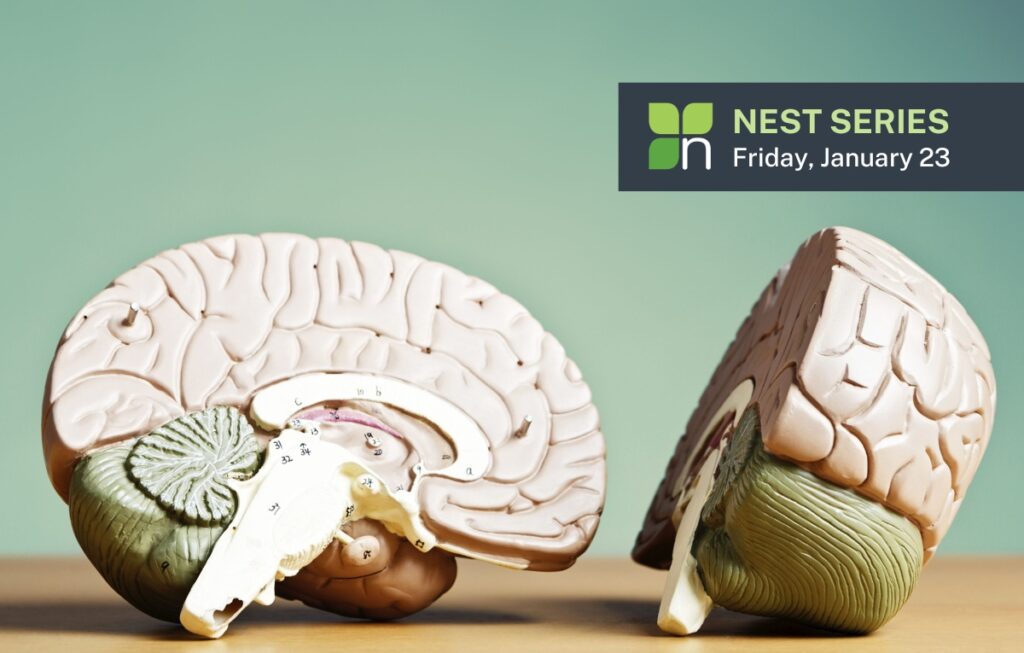
Friday, January 23, 2026 | 9:00 – 10:00 AM, PDT | Zoom
Featuring Richard D. Batson, ND, MS | Endocrinology & Trauma Science
Dr. Batson will lecture on traumatic brain injury-associated neuroendocrine dysfunction (TBI-NED), also referred to by other names including post-traumatic hypopituitarism/hypothalamic-pituitary dysfunction. The lecture will provide an introduction to the full spectrum of neuroendocrine disorders that can follow TBI including central adrenal insufficiency, central hypothyroidism, central male and female sex steroid deficiencies (hypogonadotropic hypogonadism), arginine vasopressin deficiency, syndrome of inappropriate antidiuretic hormone (SIADH), prolactin abnormalities, and growth hormone deficiency.
Dr. Batson specializes in the post-acute evaluation and rehabilitation of traumatic brain injury with a clinical, forensic, and research focus in TBI-associated neuroendocrine dysfunction. He completed his first master’s dissertation on TBI-associated neuroendocrine dysfunction and a second master’s dissertation investigating the role of serum neurofilament light as a biomarker of axonal injury and its association with pituitary axis dysfunction and white matter microstructure. His research areas include TBI-associated neuroendocrine dysfunction with a focus on growth hormone deficiency after mild injury, recombinant growth hormone replacement in the TBI population, brain injury-associated fatigue and altered cognition (BIAFAC), advanced neuroimaging in traumatic injury, and IGF-1 assay performance in the screening, diagnosis, and management of growth hormone deficiency.
He is a member of the BIAFAC research group at the University of Texas Medical Branch, where he collaborates on investigations into growth hormone dysregulation, altered cognition, and the microbiome (gut-brain axis) following TBI. He is the director of neurotrauma education and co-founder of NEST and research investigator at Helfgott Research Institute. Additionally, Dr. Batson is a peer reviewer for multiple high-impact journals including Endocrine Reviews, Pituitary, Growth Hormone & IGF-1 Research, Journal of Clinical Endocrinology & Metabolism, European Journal of Endocrinology, and Journal of the Endocrine Society and has also served as an invited peer reviewer for the Journal of Alzheimer’s Disease. He is also the president and cofounder of the Endocrine Brain Injury Research Alliance, SPC, a social purpose corporation advancing research and rehabilitation strategies for the chronic sequelae of traumatic brain injury.
About NEST
The Neurotrauma Evidence Synthesis Training (NEST) is a traumatic brain injury (TBI)-focused, mentored, evidence-synthesis training program which is currently training and mentoring a cohort of trainees to conduct evidence-synthesis projects from inception to publication including systematic reviews, meta-analyses, scoping reviews, and umbrella reviews. NEST is supported by the Endocrine & Brain Injury Research Alliance, Helfgott Research Institute and the RAND REACH Center, a National Institutes of Health (NIH) initiative, under award number U24AT012549. The content is solely the responsibility of the lecturers and does not necessarily represent the official views of the National Institutes of Health.